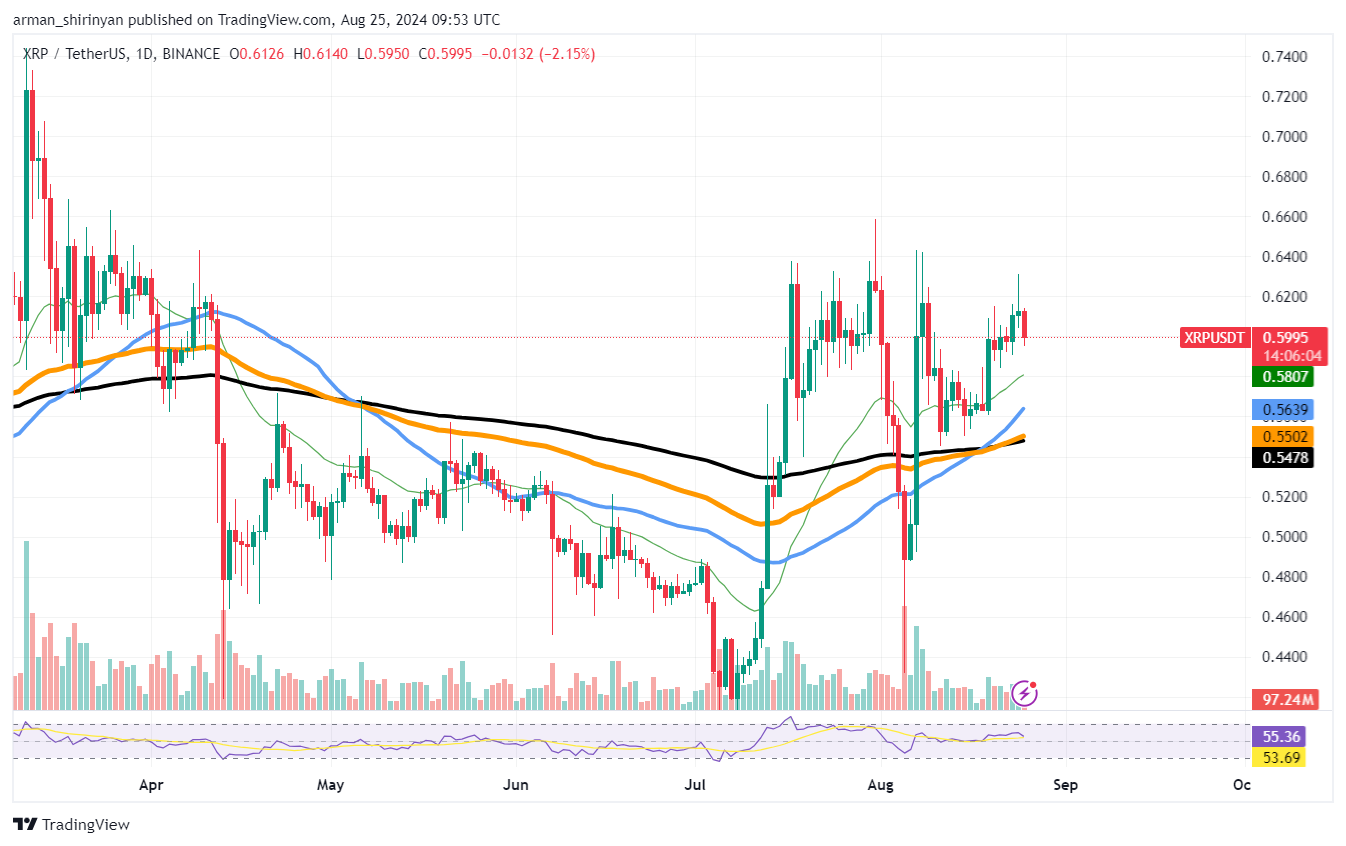Roughly 500 institutional investors revealed allocations into the spot bitcoin ETFs in the first quarter.
These included institutions of all sorts, with institutional advisors making up 60% of holders and hedge funds roughly 25%, an outcome that isn’t normally the case after only a few months after the launch of a new ETF, an expert says.
One surprising investment came from the State of Wisconsin, which allocated $160 million into the funds, and could spur more interest from pension funds in the future.
Spot bitcoin (BTC) exchange-traded funds debuted with a giant splash in January, quickly attracting billions of dollars of investment. But who was buying them and why have inflows stalled in recent weeks? Was it a fad that fizzled?
For those looking to get excited about bitcoin’s long-term prospects among large, professional investors, a new data point this week made another big splash: The U.S. state of Wisconsin’s pension fund disclosed in a quarterly filing that it had stashed about $160 million into bitcoin ETFs from BlackRock and Grayscale by the end of March.
Pensions are generally conservative with their investments and slow to embrace new things, and Wisconsin is not usually the land of flashy purchases. But if bitcoin is making inroads there – posting some of the investment industry’s highest returns over the past decade no doubt helps – then there might be good reason to suspect the original cryptocurrency can keep expanding its investor base.
“Wow, a state pension bought [BlackRock’s bitcoin ETF] in the first quarter,” Bloomberg Intelligence senior ETF analyst Eric Balchunas wrote in an immediate reaction on X. “Normally you don’t get these big fish institutions [investing] for a year or so (when the ETF gets more liquidity).” He added: “Good sign, expect more, as institutions tend to move in herds.”
Over 500 institutional investors held one or more spot bitcoin ETFs in the first quarter of the year, which is well above the average of 200 for a newly launched ETF, Balchunas pointed out. Almost all types of institutions were represented, including private equity, insurance companies, brokerage accounts, among others, according to Bloomberg data. Investment advisors made up the biggest bulk of holders, about 60% and about a quarter are hedge funds. Balchunas said that seeing all types of investors represented in the first quarter is unusual and is normally not seen until years after the launch of a new ETF.
The biggest buyer turned out to be hedge fund Millennium Management, which allocated roughly 3% of its total assets into several funds, the majority into IBIT.
It is important to realize that 13F filings only tell part of the story, and don’t give any insight into why someone made an investment. Not all of these are long-term bets or even investments hinging on bitcoin’s price rising. Some are undoubtedly from trading firms’ market-making businesses, positions held so they can act as the other side on someone else’s trade and then likely liquidated quickly.
The filing is also backward looking, and investments may have added to, reduced, or completely reversed by the time the public sees this disclosure of positions held on March 31. Bitcoin’s price has fallen since hitting a record high in March, possibly giving reason for firms to reduce their investments.
The biggest surprise here might be that a pension is involved at all, given their aversion to risk and the potential that bureaucracy might prevent embracing something new like bitcoin ETFs (though bitcoin itself is 15 years old).
In 2020, insurance giant Massachusetts Mutual bought $100 million worth of bitcoin and took a stake in crypto shop NYDIG, and the industry expected competitors to follow suit with similar moves – but that really didn’t materialize in a big way.
The introduction of bitcoin ETFs makes it easier, though – even if it might take time for more pensions to copy Wisconsin. Instead of buying bitcoin directly and then sorting out how to hold it safely, an investor (large or small) can simply buy an ETF that holds it. ETFs trade just like regular stocks; administrative concerns like custody are minimal or nonexistent.
“Pensions typically have highly rigorous due diligence processes, which means it can take time when deciding to allocate to a new investment – particularly one in an emerging asset class,” said Nate Geraci, president of the ETF Store.
The allocation from Wisconsin’s board of investors within only a few months of the launch of the ETFs shows that institutions of that size can quickly get comfortable with the structure and liquidity of these funds, he said.
‘Wave of demand’
“I expect to see more pensions follow suit, but it will be a slowly building wave of demand versus something that happens overnight,” Geraci said.
Kyle DaCruz, head of digital assets at VanEck, one of the issuers of the spot bitcoin ETFs, said the recent development shows pension plans are now comfortable investing in digital assets. “My assumptions would be that it will certainly help pensions and institutions get comfortable sooner, though I anticipate it being a relatively small number to start,” he said.
A representative for the Wisconsin investment board declined to comment.
Pension funds are likely some of the most risk-averse investors in the industry as they are, by law, forced to “minimize the risk of large losses.” Digital assets, some of the riskiest assets out there, are therefore not typically thought to be a great investment for retirement funds.
This is also one reason why investment giant Vanguard is not letting clients buy spot bitcoin ETFs as the company doesn’t see digital assets fitting into a long-term portfolio, like a retirement fund.
News on Tuesday about the appointment of BlackRock’s former head of ETFs, Samil Ramji, as Vanguard’s CEO sparked chatter that the firm might change its stance on crypto, but Ramji said in an interview with Barron’s on Wednesday that he has no intent of reversing Vanguard’s decision to launch a spot bitcoin ETF.
“Behind the scenes, I think a lot of investment committees at these bigger institutions are working through getting approvals for allocating funds to bitcoin. This sort of approval process doesn’t happen overnight, however, meaning that it will take months and possibly years for this sort of institutional adoption of bitcoin to fully play out, but it’s clearly happening,” said Stephanie Vaughan, chief operating officer at Seven Seas Capital.
“And, yes, it is different this time. With the stamp of approval not only from the federal government but also massive firms like BlackRock and Fidelity, the game has changed,” she said.







